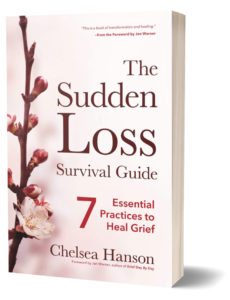When coping with grief and breaking grief misconceptions will aid your healing. Today as we live in the twenty-first century, our culture promotes denial and avoidance of death.
- We do not like to talk about or think about death because we fear it.
- We do not want to admit death will happen or that it is real.
- We like to keep the thought of death at a distance.
Unfortunately, we are not as publicly and privately enlightened about death as our ancestors from years ago. Many people have not learned how to talk about death or how to support the bereaved. Due to lack of education and fear, you may be vulnerable to not getting the support you need.
By being aware of society’s discomfort with death, you can be proactive and let others know it is okay to talk about death, dying and your loved one. Take the initiative to start a conversation about your needs.
Let’s break the misinformation about grief.
As you know, society has many unhelpful and unrealistic messages about grief. Many people buy into these myths because of the lack of death and dying education in our society. If these messages have been internalized, you may think you should act differently when grieving.
Examples of these myths include:
- You should be over your loss in a short time.
- You will be back to your “old self” and “normal” in no time.
- You should not cry because it shows weakness.
- You need to be strong.
- You should ignore your pain so it goes away.
- You will grieve in predictable stages and order.
Please ignore the misconceptions surrounding death. As you grieve and integrate the sudden loss of your loved one into life, you will need to do what is best for you.

GRIEF HEALING EXERCISE
Often people will say things that may anger or upset you. In contrast, others may be very supportive and understand what you are going through.
Ask yourself if the information you encounter is helpful or not helpful.
Each day your task will be to distinguish supportive responses and actions from those that are not. Simply disregard any unhelpful responses immediately and concentrate on the supportive comments and actions.
For those comments you may not like, say “Thank you for your concern,” to end the conversation. Alternately, if you are up to the task, you can educate others on what comments are helpful and not helpful.
ACTION
- What unsupportive statements or actions have you encountered?
How can you respond in the future? - What myths about grief do you believe or have internalized?
- Give yourself permission not to follow or believe these myths.
How can you do this? List actions you can take going forward.
Remember, you intuitively know what is best for you.
If you are personally supporting a grieving individual, be cognizant of the messages you are consciously and unconsciously giving to ensure they are appropriate. You can’t remove the heartache, but you can acknowledge it. The griever needs to be safe to speak his or her truth without fear of judgment or receipt of platitudes. Like love, grief needs expression.
Wishing you the fortitude to follow your heart, and not the expectations of others.
Chelsea

Leave a Reply